
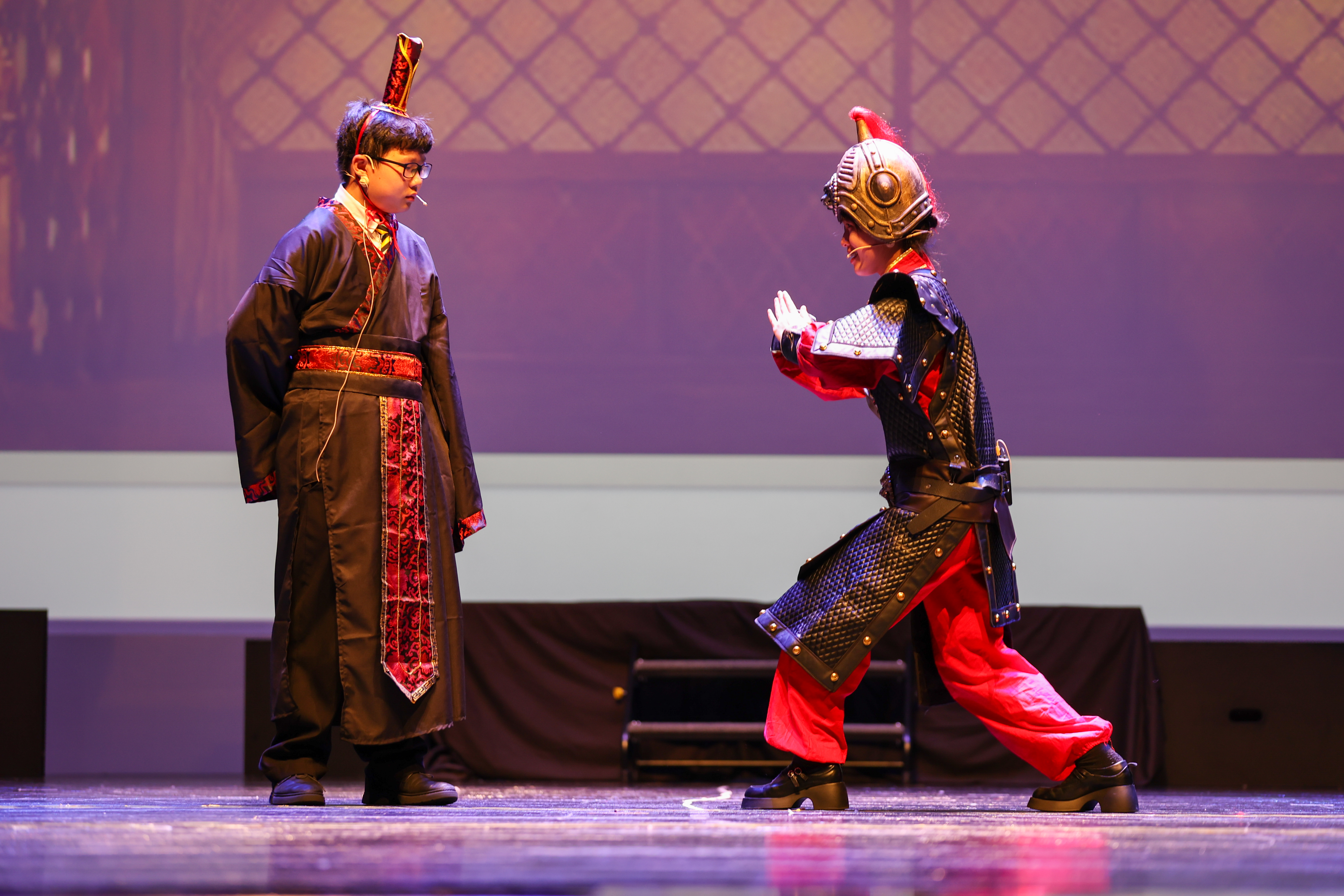
There is a well-known idiom in China from a classic article on how Sun Quan, founder of the Eastern Wu dynasty, one of the Three Kingdoms, encourages learning. It indicates that a scholar who has been away three days improves themselves significantly and needs to be looked at with fresh eyes.
Granny Liu from the classic Dream of the Red Chamber said that noble families have an emphasis on etiquette. Her seemingly laughable rustic manners are a demonstration of her wisdom.
Maupassant’s classic, The Necklace, tells us a story of how a fake diamond necklace cost the beautiful Mathilde a decade of menial labour for her vanity.
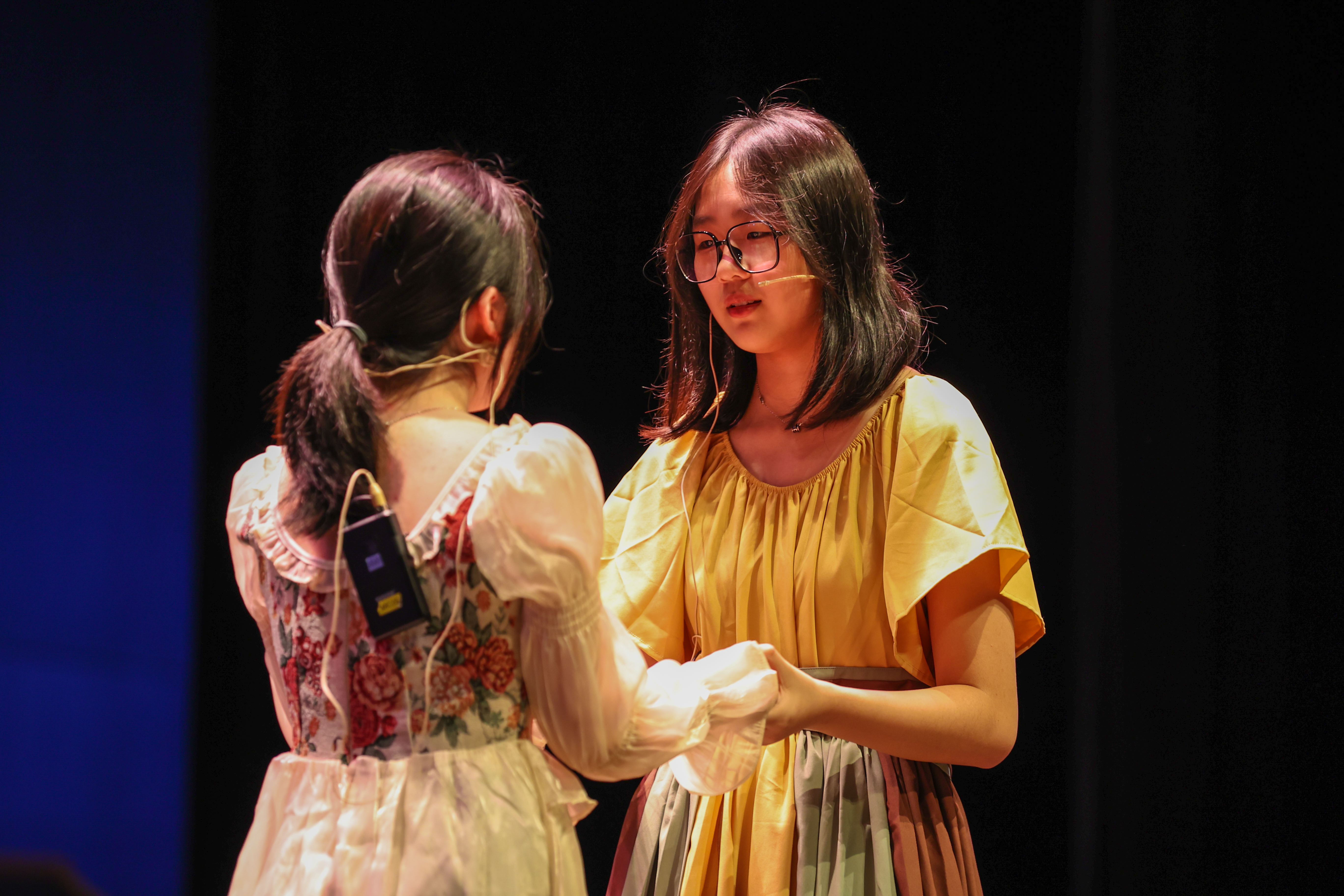
For some pupils, reading the classics may seem like a headache: reading a thick dusty book on a scorching summer’s day about old stories that are far away from their modern lives often fails to spark their learning interest. However, there is compelling evidence that reading the classics can have a positive impact on our brains. A Liverpool University study discovered that reading classical literature can boost brain power, improve attention span and memory, and expand our intelligence. Professor Philip Davis, who was a part of the study, revealed that ‘serious literature acts like a rocket-booster to the brain.’
In an era where we are inundated by massive information that leads to reading fatigue, how can we guide our pupils to explore the classics? Classics have stood the test of time and will allow pupils to reflect and find peace of mind. Rather than merely reading textbooks, we have adopted a creative approach to teaching these stories by staging them as drama plays. Consequently, we observed an immediate increase in enthusiasm from Hiba pupils and a deeper understanding of the characters and the implications of the stories. Read on to learn more about our unique Chinese drama play.
How do dramas help us learn Chinese?
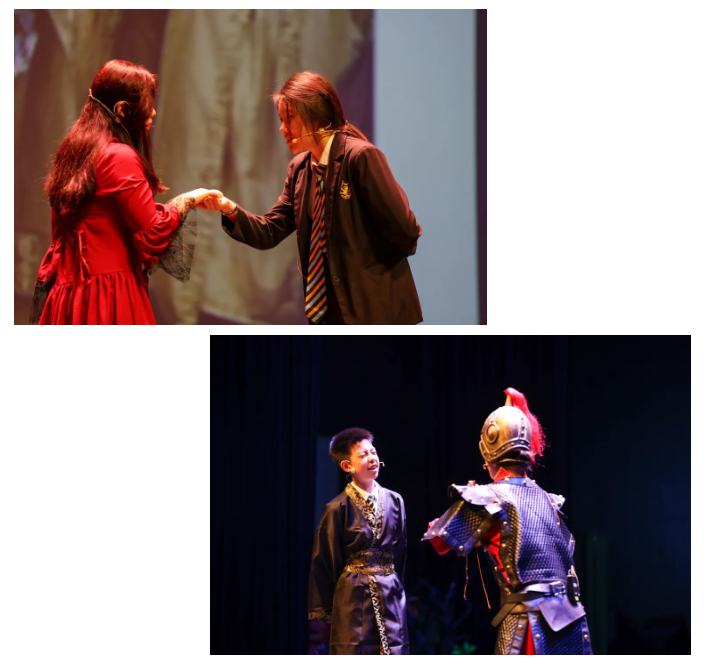
Drama is a form of art that involves verbal and non-verbal language communication, music and fine arts. It enriches one’s experience and improves their understanding, expression, creativity, hands-on ability and collaboration. Here at Hiba Academy Hangzhou, we firmly believe that pupils can learn Chinese through dynamic approaches. A combination of Chinese learning with drama plays integrates abstract thinking with body language and textbook knowledge with practical skills. This approach allows pupils to feel the emotions, create wonder and improve their expressive ability as well as acquire knowledge. With the collaboration of our Grade 7 to 9 pupils and the Junior High Chinese department, we bring the classics, including Sun Quan Encouraging Learning, Granny Liu Visits the Mansion, Du Fu, and The Necklace to life on our drama stage.
Learning experience is what we stress more in learning Chinese at Hiba
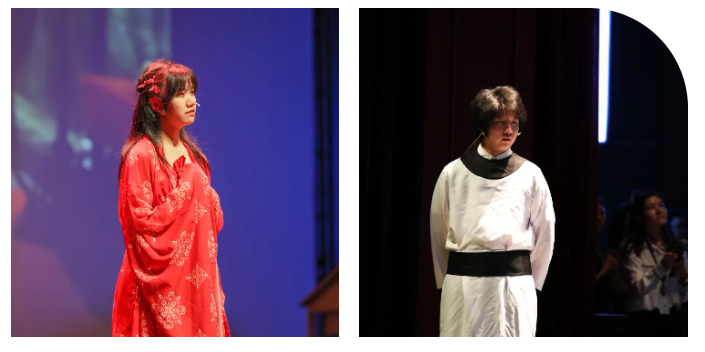
Our Junior High Chinese teachers have been working to explore various ways of learning to create an immersive Chinese learning environment and an open, inclusive pedagogy that facilitates the well-rounded development of our Hiba pupils. The emphasis is not only on achieving results but also on maximising the overall experience. During this drama project, pupils showcased their strengths and interests, by composing and revising the play, and participating as actors, directors and props managers, all of which deepened their understanding of the texts and the characters. Thus, what they learned in class was extended beyond the literal meaning.
What do the pupils and their parents have to say about this distinct learning approach?
We interviewed some participants and parent audiences after the play. Let us hear what they think about this unique language-learning approach.
Alice, Actress in Du Fu
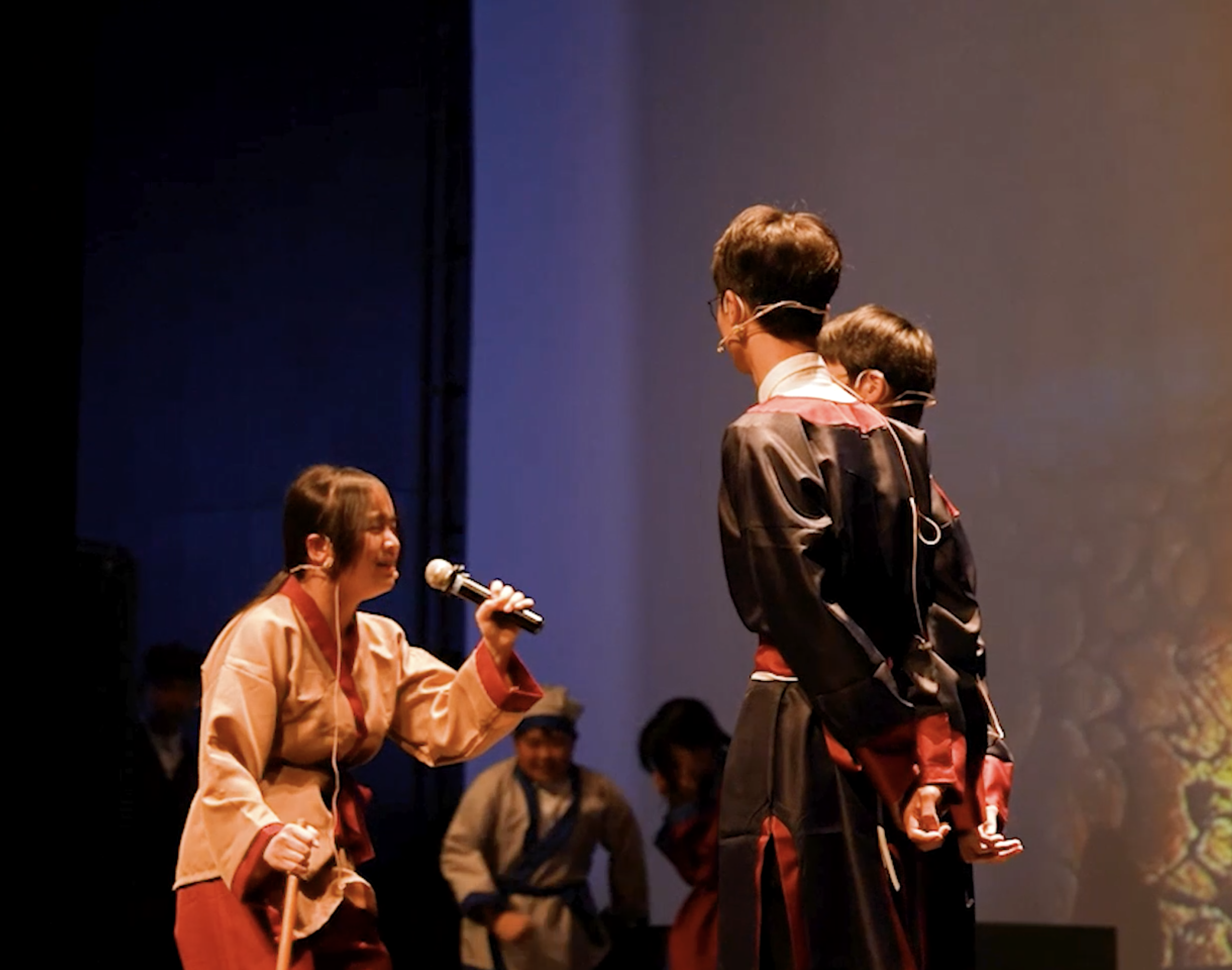
I played the role of “elderly woman”. I don’t find playing this role overwhelming because I am an experienced actress with three years of musical experience. The only challenge was to memorise all the lines within only two weeks. I think my performance exceeded my expectations. But next time I play an elderly woman, I will work to lower my voice more to make it closer to the character.
Tom, Director of The Necklace
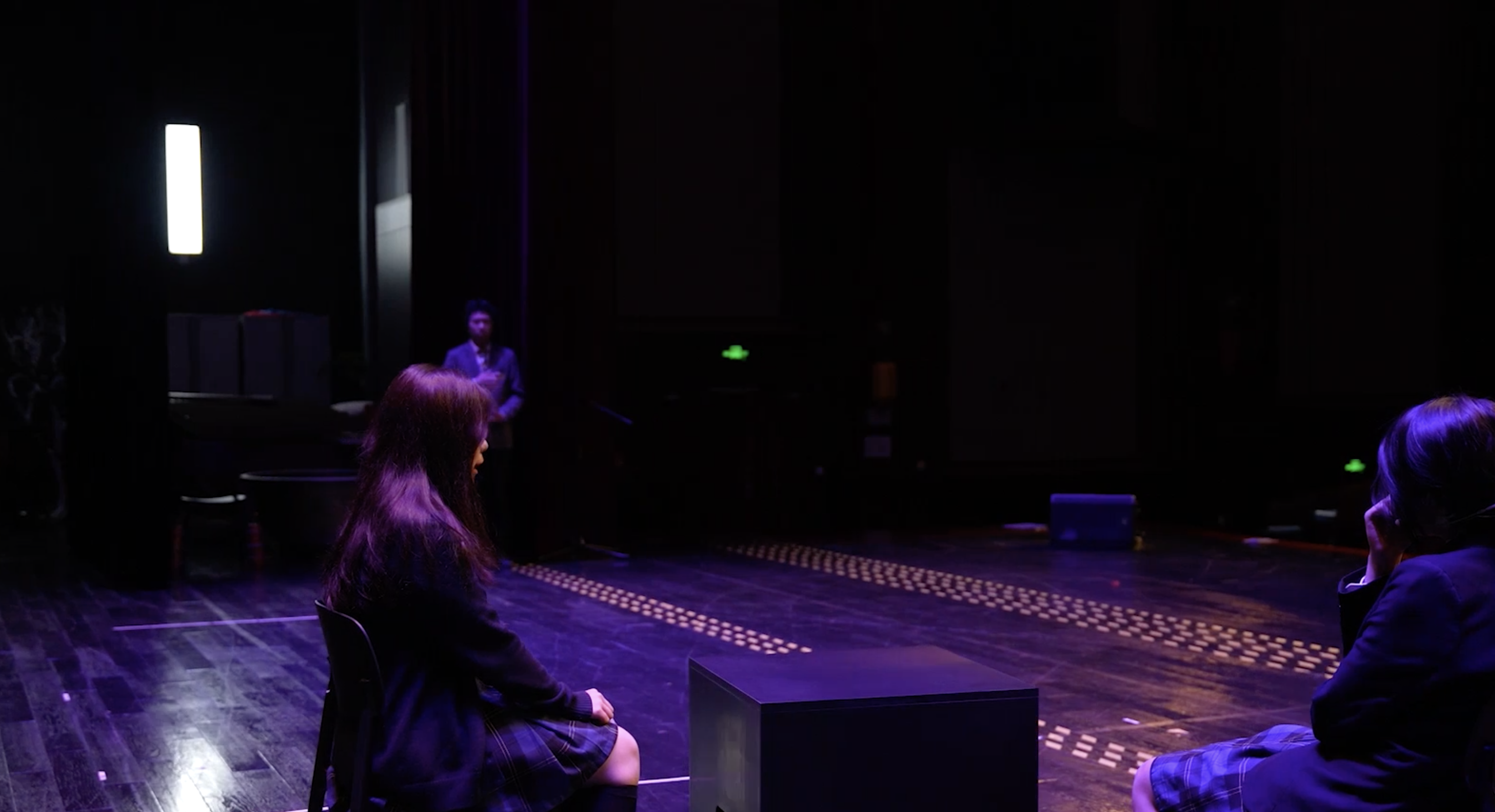
For me, directing the play was an incredible experience and challenge. From not knowing a thing about being a director to collaborating with the team and getting closer to everyone. And to the final presentation of the postures, expressions, tones and the lighting on the stage, I have learned so much because I used to be an actor, not a director. Now I am more confident to continue IGCSE drama as my optional course.
Jack, Prop Manager for Granny Liu Visits the Mansion
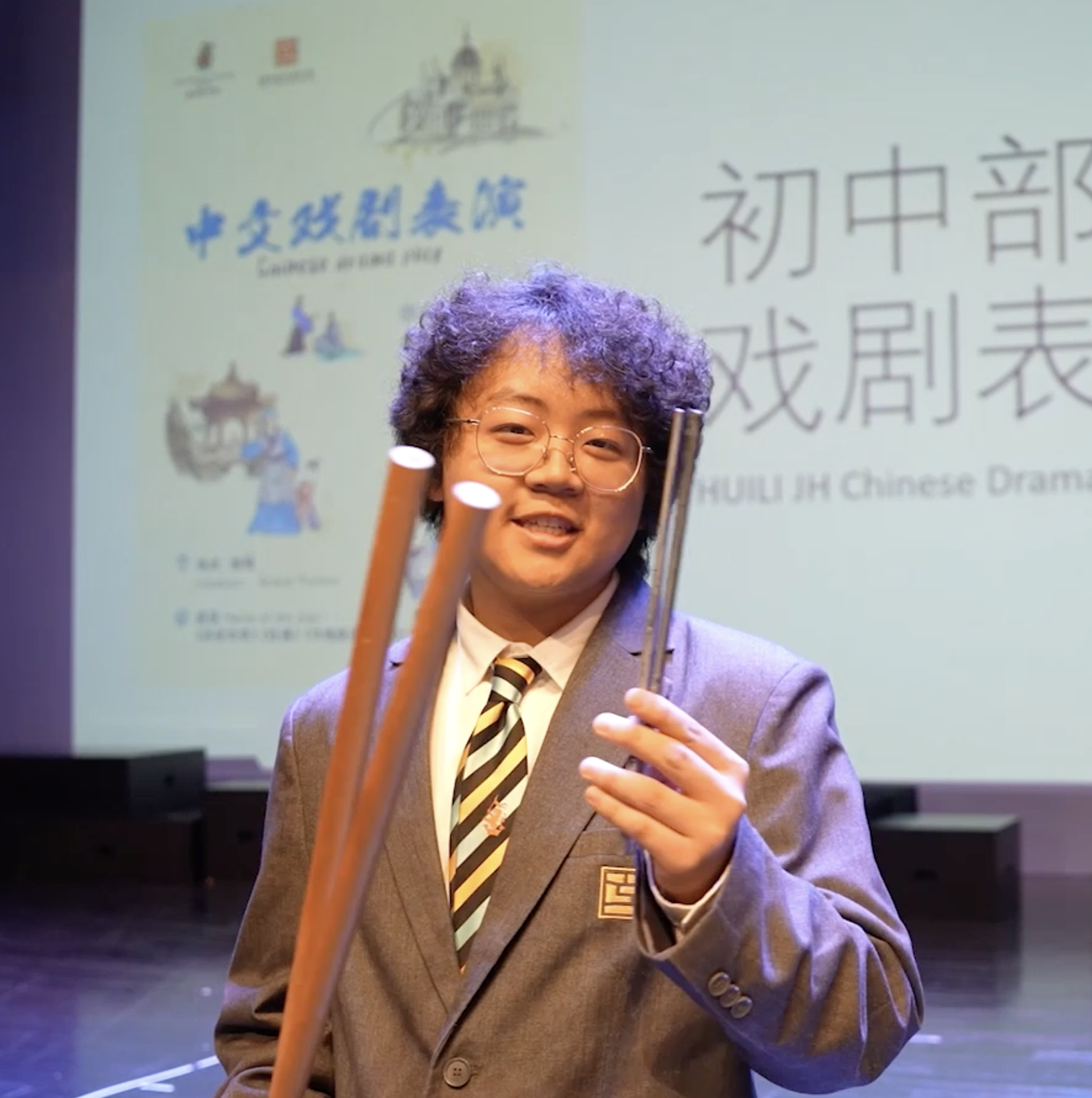
I was responsible for stage props for this drama play. As a unique course in the British education system, our school has design and technology lessons, from which I learned a lot and used my spare time after school to make “golden chopsticks” and “silver chopsticks” and contributed to an improved stage effect.
Christopher Zhang, Chinese Language and Literature Teacher
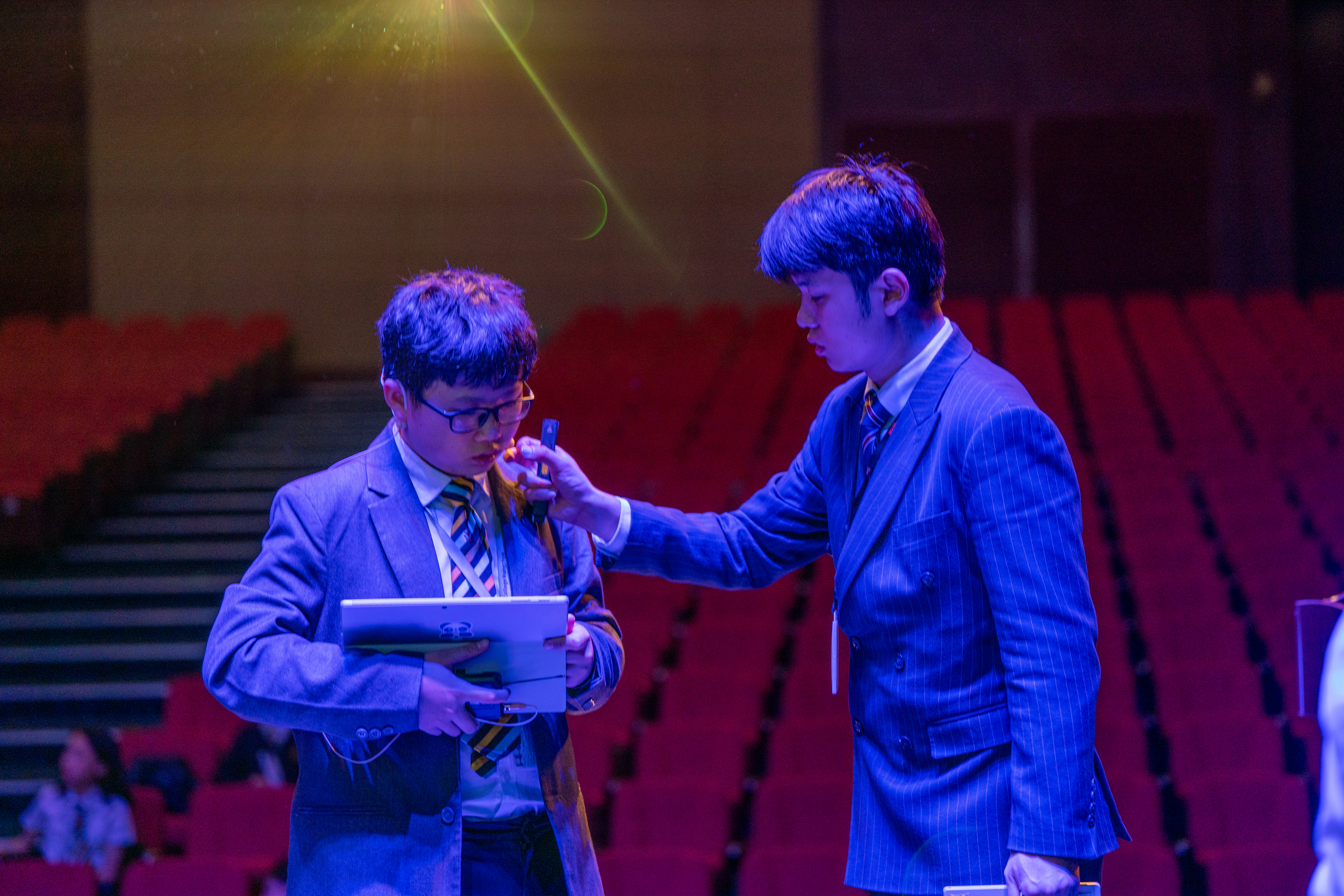
I was in charge of the play Sun Quan Encouraging Learning by Grade 7 pupils. What was challenging for pupils while playing, was to memorise the lines written in classical Chinese. Pupils put a huge amount of time into the play while considering the requirement of their vocal, line, physique, and performance. It was also a good practice to improve their language ability. I believe this play was a rewarding experience for both the pupils and teachers, and that we will continue to improve ourselves in similar events.
Current parent
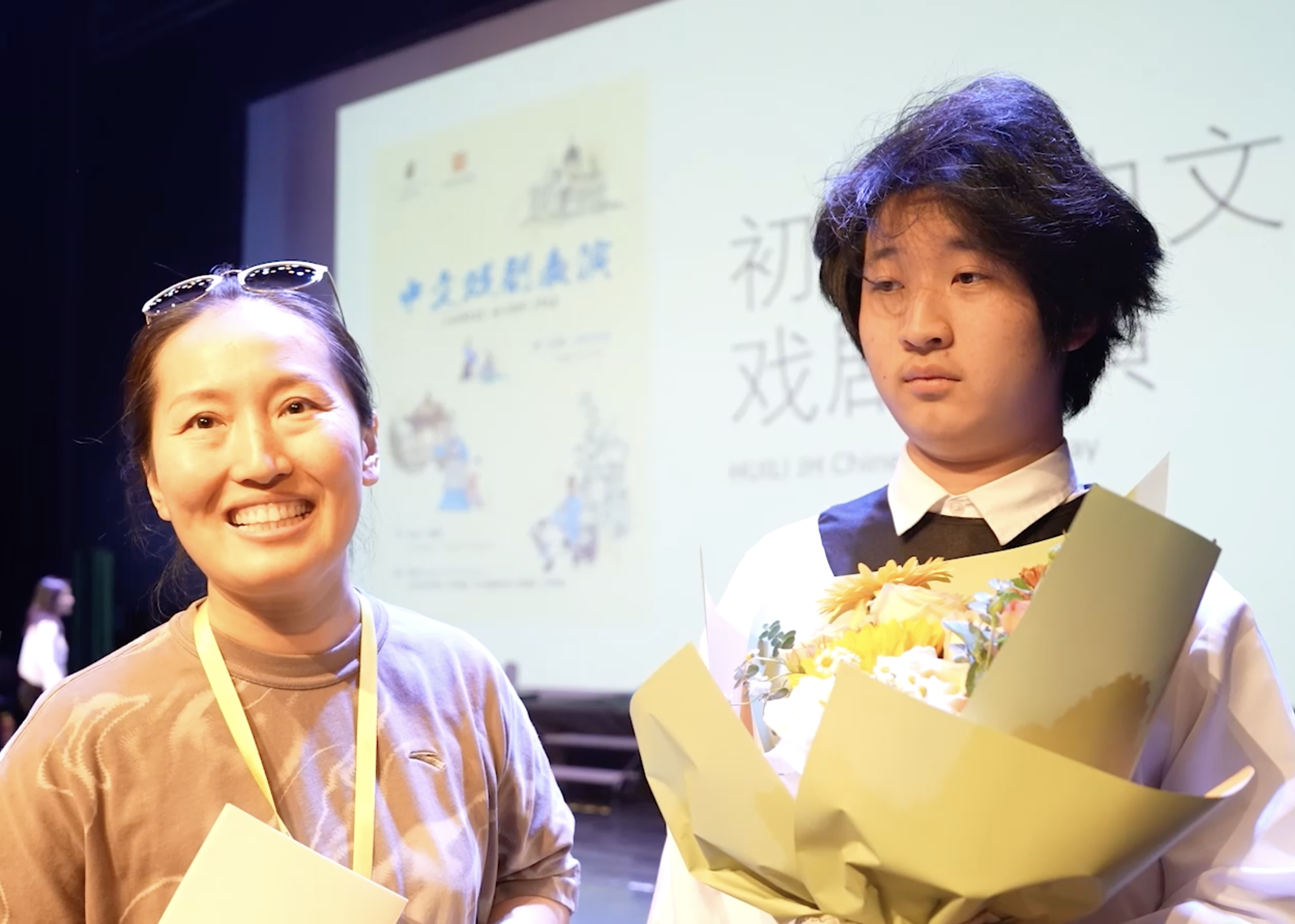
What a wonderful play by the children! They put rich emotions into the play. I learned they practised even in their dormitories, working incredibly hard to present a better stage effect.
By portraying characters from the classics, Hiba pupils delved into the characters’ inner emotions and deepened their understanding. Charmed by the romance of the classics, they were able to study classics from a brand-new level. Just like that, we draw strength from the classics and march forward to the future, an embodiment of how we follow a proud tradition and educate for the future at Hiba. We believe that in such a caring, bilingual community at Hiba, we develop well-rounded individuals with strong values and the skills to thrive in an ever-changing world.